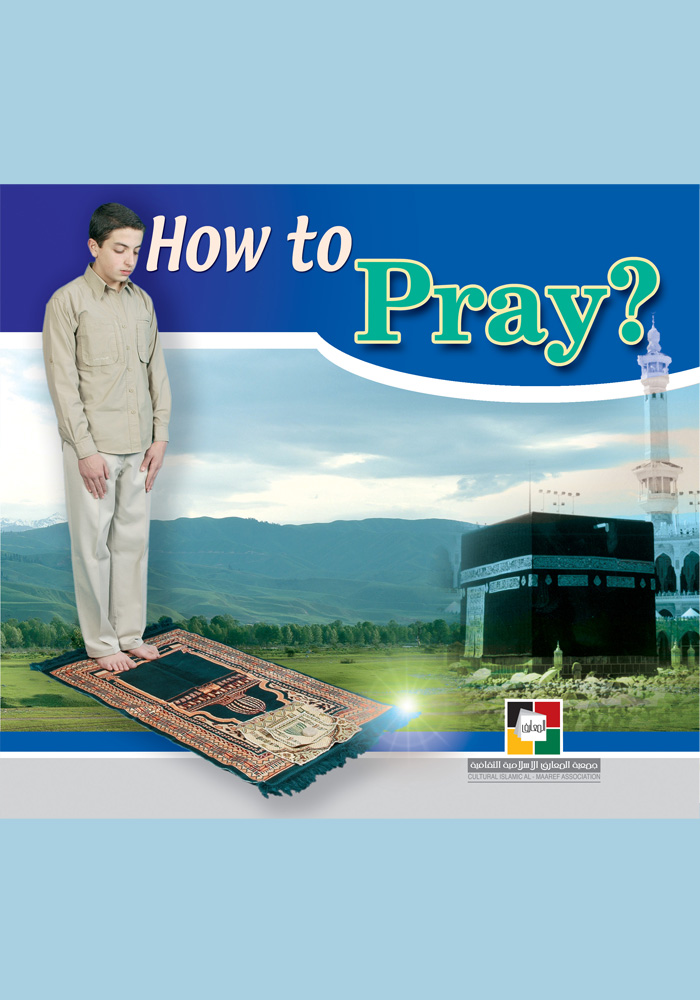
How to Pray?
الناشر: جمعية المعارف الإسلامية الثقافية
تاريخ الإصدار: 2018-03
النسخة: 0
الكاتب
مركز المعارف للتأليف والتحقيق

الناشر: جمعية المعارف الإسلامية الثقافية
تاريخ الإصدار: 2018-03
النسخة: 0
مركز المعارف للتأليف والتحقيق
The Book
Principles of Religion
Following a Religious Jurist (Taqlid)
How can you identify the knowledgable one?
of several grand widely known religious jurists (may Allah protect them all). I observed that the Grand Leader is quicker, stronger and more accurate than others in deducing the branches from the principles. If that is the point, and it is, then, I admit and witness, through what I had experienced his scientific arguments, that the Grand Leader (may Allah protect him) is the most knowledgeable among his contemporary religious jurists (may Allah make us benefit from his leadership, instructions and revelations).
Ayatollah Khamenei (may God protect him), as a whole, is the sharpest and most knowledgeable regarding the sciences required in Taqlid and in bearing the burden of Islamic nation leadership.
How to Pray?
How to Perform Ablution?
Limits of Ablution Organs
Obligations of Ablution
2- Wash your right hand from the articulation (i.e. the elbow which joins between the upper arm and forearm) to the tips of fingers i.e. from the above downwards.
3- Wash your left hand from the elbow to the tips of fingers i.e. from the above downwards.
4- Wipe the frontal part of your head with the wetness of the palm of your right hand.
5- Wipe with the moisture present in the palm of your right hand the outer right foot from the tip of toes to the ankle.
6- Wipe with the moisture present in the palm of your left hand the outer left foot from the tip of toes to the ankle.
When do you Perform Tayamum?
With what do we perform tayamum?
Organ's limits in tayamum
Acts of Tayammum
2- Rub the forehead and the two brows with the palm of hands commencing from the spot where the hair of one's head grow down to the eyebrows and above the nose (it is recommended that the palms pass over the eyebrows) from the above downwards.
3- Rub the outer part of your right hand (commencing from the wrist to the tip of the fingers) with the palm of left hand from the above downwards.
4- Rub the outer part of your left hand (commencing from the wrist to the tip of fingers) with the palm of right hand from the above downwards.
5- It is recommended to strike your hands on the earth second time and rub the outer part of your right hand with the palm of your left hand in addition to rubbing the outer part of your left hand with the palm of your right hand.
25
Prayer's Clothing:
In the Name of God, the All-merciful the All-compassionate
Prayer Time
4- Time of Dusk Prayer: It starts at the religious legal sunset*** and ends few minutes before midnight enough for evening prayer.
Place of prayer
Adhan & Iqamah
In the Name of God, the Most Gracious, the Most Merciful
Numbers of bows of prayers
Morning Prayer:
Two Bows
Noon Prayer:
Four Bows
Afternoon Prayer:
Four Bows
Dusk Prayer:
Three Bows
Evening Prayer:
Four Bows
First Bow (Raka)
33
The Noon, Afternoon and Evening Prayers (Salat Al-Zuhr, Al-Asr, Al-Isha)?
2. Recite Al-Fatiha (the first chapter of the Qur?an) correctly with another full chapter, such as
3. Bow down; that is, to bow until your hands reach your knees and say, "subhana rabbiyal eazimi wa bihamdihi" "Glory be to my Lord, the Great, and praise belongs to Him," or "Glorified is my Lord (Allah); Glorified is my Lord (Allah); Glorified is my Lord (Allah)"
4. After bowing down (RUKU), stand up back again in an upright position. It is recommended that you say, (The Lord (Allah) shall hear the one who thanks, praises and glorifies Him).
During prostration, say, "subhana rabbiyal aila wa bihamdih" "Glory be to my Exalted Lord, and praise belongs to Him",or (Glorified is my Lord "Allah"; Glorified is my Lord "Allah"; Glorified is my Lord "Allah").
7. Prostrate again repeating what you said and did in the first prostration.
Raise your hands towards the sky with the palms as in the figure (1), that is, keep your hands in front of your face, turning the palms facing upwards, and keeping both the hands and the fingers close together, and supplicate anything, whether earthly or heavenly need.
Third Bow:
14. After you raise your head from the last prostration, recite the bearing of witness as mentioned earlier and then recite the Salutations by saying,
How to pray the Dawn Prayers (Al-Sobh)
Parts of the Prayers
The Best of Prayers
Prayers are nullified when one of the following things takes place:
Rulings and Provisions of Doubt in the Prayers
Rulings and Provisions of Doubting the Number of Bows in the Prayers
6. When doubting among the third, fourth and fifth bows while standing up, the worshiper sits down immediately, adopts the fourth bow and completes his prayers. After salutations, two bows are then provisionally performed while standing up in addition to two bows while sitting down.
Provisional Prayers
Inadvertent Prostrations
How to perform the inadvertent prostration: